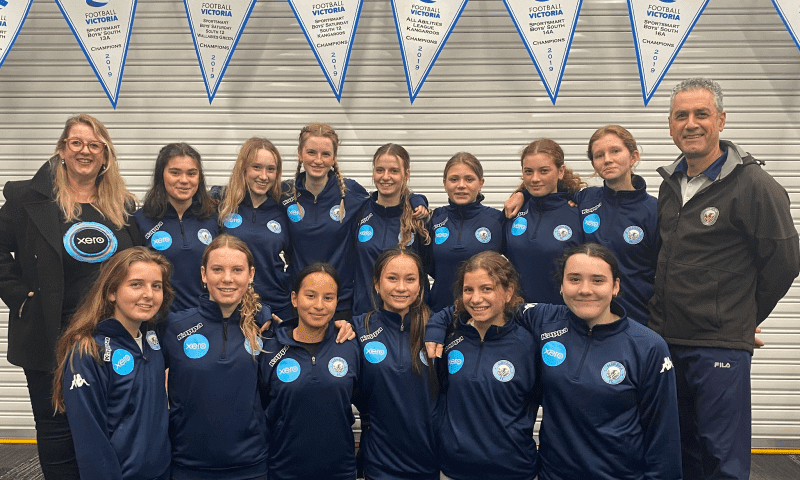
When I moved back to Melbourne in 2017 after 15 years living overseas, I joined the Glen Eira football club as a volunteer because it’s a great way to meet people and it’s really rewarding.
At the club we live by our motto which is “football for all”. We have wheelchair football, we have all abilities football, we have walking football, we have Go SoccerMums for women to have a kick around while their kids are at training to promote staying active. Encouragingly, we’re seeing more interest from girls and we’re also seeing more interest from the boys in women’s professional football.
It takes a village of volunteers
But these things don’t just happen. The vast majority of community football in Australia is managed by volunteers and there are very few clubs that have paid administrators or paid staff.
If you look at a club like Glen Eira FC, we have about 60 teams and that’s at least three or four volunteers per team before you’ve even run the club. That’s coaches, assistant coaches, team managers, ground marshals – all of whom are unpaid. Every weekend we also have a full roster of teenagers who do things like set up grounds, put flags out, empty rubbish bins and so on.
Then you’ve got the administration of the club that has to go on alongside. While it’s fantastic that football is growing, it means we need to fight for space which means working with local councils. We have to have someone managing apparel, someone running the canteen, a Committee in place to manage the club in line with stringent governance requirements. You also have to have delegated financial authorities so that the money coming in from members is spent appropriately.
Working smarter not harder
So, for a club like us, a solution like Xero helps us manage all of those things centrally with good visibility. It also has an integration with the team management system we use called Majestri. When someone goes on our website and puts their name down, a record is created in the Majestri system. When it gets to the point where they need to pay it generates a request for payment and then reconciles that with Xero so that we don’t have to do all of those things manually. We have nearly 1,000 members and that’s a lot of work at the beginning of the season.
Our Treasurer is a volunteer and has to report to the Committee every month about how we’re performing financially. The fact that we have Xero means she doesn’t have to manually do bank reconciliations and other time intensive tasks. We can also manage our cash flow so that when we have a Committee meeting where we’re looking at requests for purchase, we’re in a position to make an informed decision about whether we can afford it. This is because we have clear visibility not only of what’s in our bank account but what we’re likely to have to spend going forward.
Importantly, for growing participation, it also allows us to make informed decisions when we set fees. We look at inflation and cost of living pressures for families so we can forecast the extent to which we can make provisions for hardship and offer the occasional scholarship for kids who can’t afford to participate in the high performance teams. It also gives the others on the Committee, who are not the Treasurer, confidence in what they’re being shown as most of the people approving these decisions are not accountants.
It’s not lost on me how lucky we are to have an accountant as our Treasurer, but a lot of clubs don’t have that. As the sport grows, financial and other governance standards are expanding but clubs don’t always have people with experience in managing that, so they have to become sophisticated in other ways. They need to have the tools in place that enable the volunteers who are there to be able to do the job more easily and to the required standards.
Keep it simple, do it well and have fun along the way!
By making it easier for clubs to be run with the right tools, it frees up the capacity to be able to focus on other things. If we had to spend all of our time dealing with finance questions in our Committee meetings we’d have no bandwidth to have conversations about how we can run programs and create an inclusive environment where everyone feels welcome. And you have more time to have fun!
If you’re looking for a way to get involved with your local community then I recommend getting in touch with your local sports club. Or if you’re already involved, then take a look at the free resources Xero offers through our Better Numbers Program to improve the financial health of clubs. Because, better numbers off the field will mean better numbers on it.
The post The importance of community football appeared first on Xero Blog.
Leave a Reply